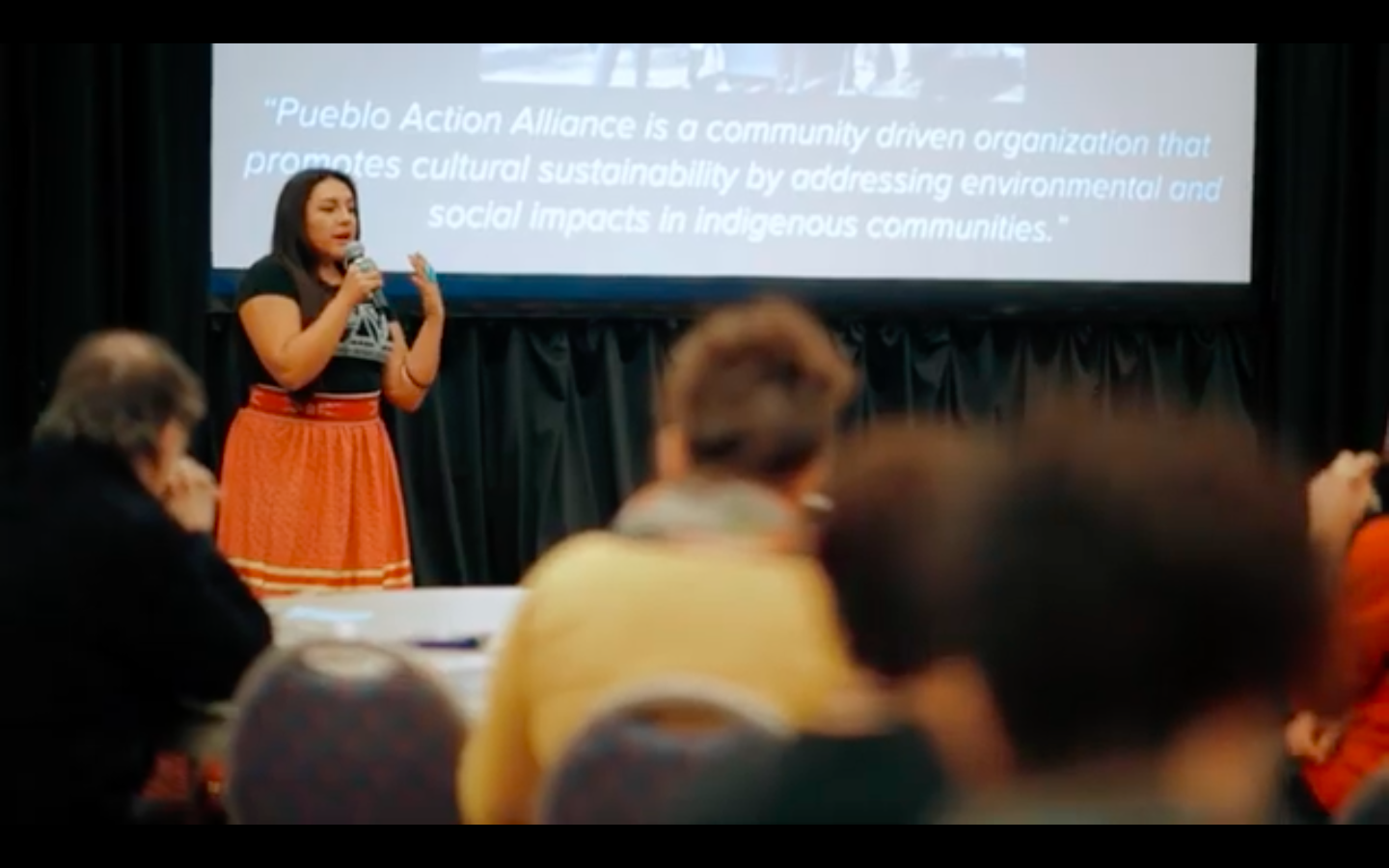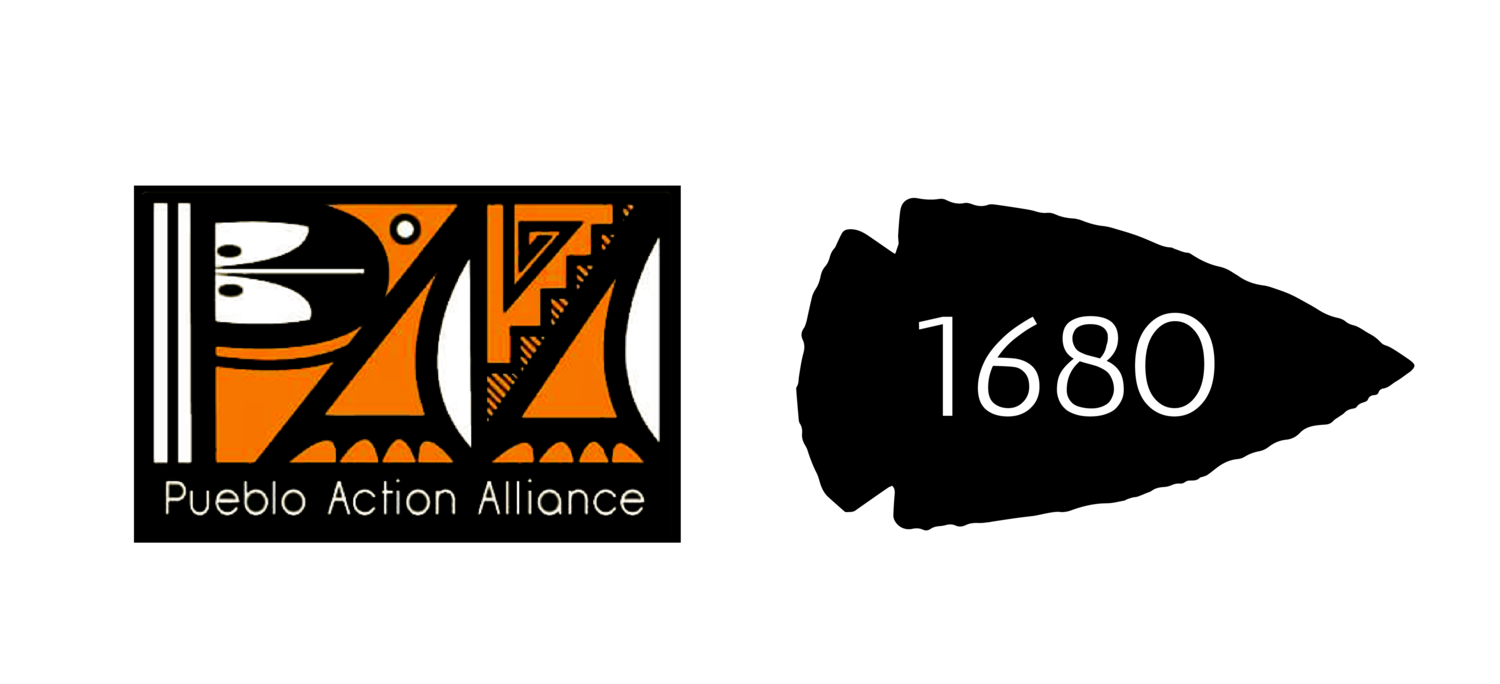Within our core values as Pueblo Indigenous Peoples, we have been storytellers and knowledge keepers since time immemorial. Our ancestral knowledge continues to carry us through as settler colonialism fragments our original styles of learning, which was always in community with each other. PAA strongly believes in creating intergenerational and accessible spaces of learning for all. We have created a series of workshops that include spaces of learning about popular and political education. Each one is framed to uplift the current work and campaigns within PAA.
We have also been working with a local Indigenous Charter School, Native American Community Academy, and their Land Based Learning team to implement Building Indigenous Pedagogy through Community Based Learning. We look forward to strengthening this relationship with NACA and building with other schools in the future.
Scroll down for descriptions of the different workshops we offer.
Dismantling Colonialism: The Doctrine of Discovery
This workshop covers the violent effects of the Doctrine of Discovery on Turtle Island and will dissect how it stems from deep-rooted colonial phobic behaviors against Indigenous Peoples across turtle island. We will be unpacking how the DOD and US Constitution continue to halt justice to victims and their families in the landbases we organize on. There will be space for relatives to reflect and share knowledge with each other while providing ways to continue the conversation.
Body Mapping Workshop:
What happens to the land, happens to our bodies
This workshop aims for participants to build understanding of land-body connections by looking into how our bodies carry the weight and knowledge to address concerns in our own communities. We want to help our relatives understand that restoration in a global pandemic is okay and key because we have a right to do that. Our intention is to focus on our relatives to process our own experiences at this current moment in time; to acknowledge that we carry the strength and power within ourselves for self-preservation. In order for us to take care of our communities, we must also continuously take care of ourselves. We will chart our body's experiences to empower participants to recenter themselves for the purpose of self-care today. We will strive to provide the tools for participants to find balance and restoration through reflection and process.
Fracking 101
What is “fracking?” This workshop is designed to provide an understanding of the history of oil and gas in New Mexico and how it has affected indigenous people and people of color. Participants will be taken through a timeline of extractive industry, learning the ways in which the industry “fracks;” where they frack, why they frack and how they frack. Also bringing to light the water resources issues related to fracking operations and how entire watersheds are at risk whether that’s by water, air, and soil pollution. We address that all the realms of water, air and soil are integrated systems and that the health of the land, water and air reflects the health of the people and non-human relatives. Participants are given the resources to stay engaged with ongoing crusades of the oil and gas industry and how it affects the Greater Chaco Region and beyond.
“Health Effects of Fracking” from our Chaco Zine.
FPIC
Free, Prior, and Informed Consent (FPIC) is a framework and tool that Tribal and Indigenous communities can utilize when engaging with state and federal governments, corporations, and/or policy that impact Tribal/Indigenous communities, land and water. FPIC is different from tribal consultation in that it goes further to ensure that Indigenous communities have a say, have power and give or withdraw consent in decision making/policy processes affecting their land, water, air and people. FPIC came out of the United Nations Declaration on the Rights of Indigenous Peoples (UNDRIP) in 2007. This workshop will allow for participants to understand how the creation of UNDRIP was in response to Indigenous communities, across the world, being continuously ignored, disrespected and excluded in matters that directly affect Indigenous communities. FPIC as an international policy has the power to help Indigenous communities assert their sovereignty and create change such as mitigating the climate crisis, leading to successful co-management of lands and overall having a seat at the table. Goal is to initiate conversations and action to learn how to use FPIC for and within our communities.

Julia speaking on PAA's purpose at Culture Shift 2018.


